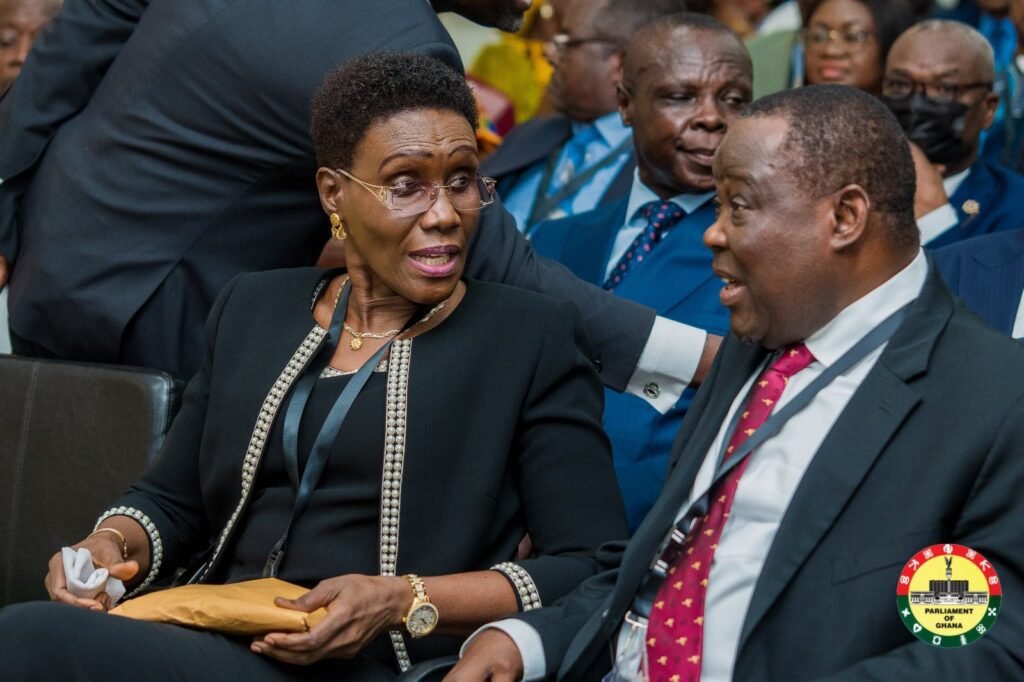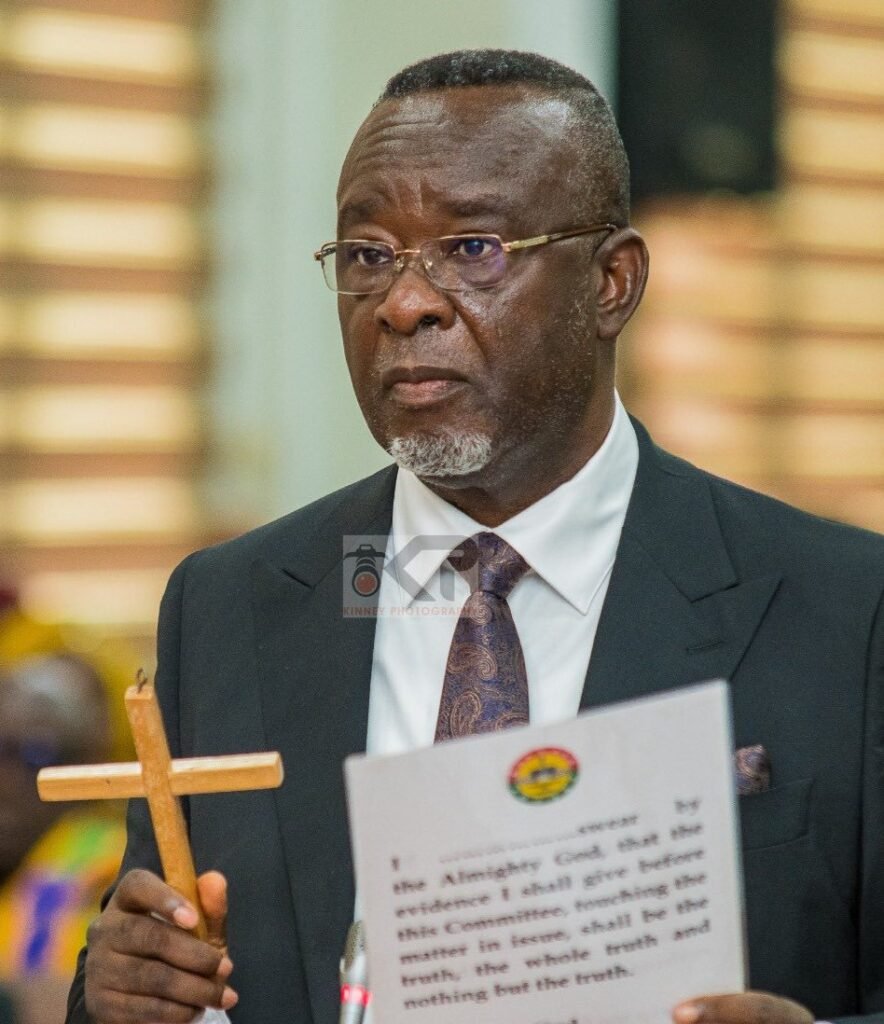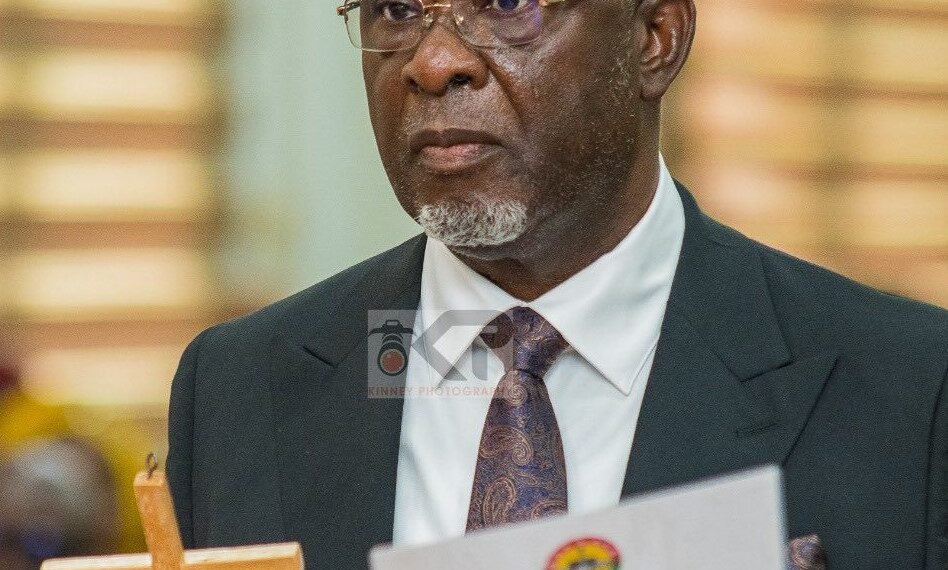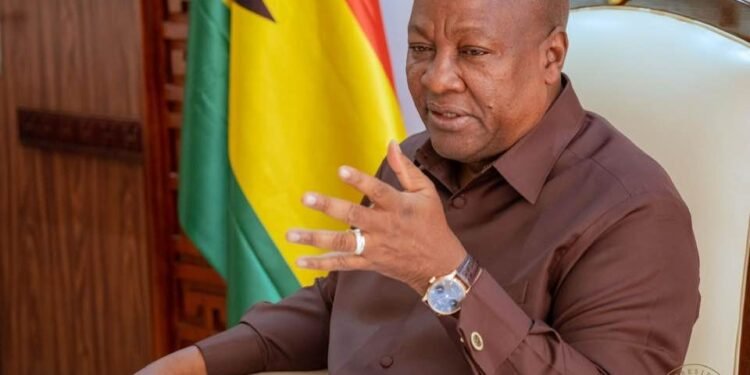Chief Justice nominee Justice Paul Baffoe-Bonnie has pledged to lead a transformative era in Ghana’s judiciary, committing to rebuild public trust and strengthen institutional credibility during his vetting before Parliament’s Appointments Committee.
Addressing the committee in what he described as a “national reckoning,” the nominee said he was fully aware that his appearance came at a defining moment in Ghana’s democratic evolution—one marked by public scepticism and a deepening demand for justice that is fair, transparent, and felt by all.
“Before you today as nominee for Chief Justice, the Judiciary of Ghana stands at a defining moment… My nomination comes at a pivotal moment in Ghana’s democratic journey, a moment marked by public scepticism, institutional fatigue, and a growing demand for justice that is not only delivered, but deeply felt.”
Justice Paul Baffoe-Bonnie, Chief Justice Nominee
He noted that national expectations extend far beyond the traditional functions of the judiciary and now touch on its moral leadership and ability to inspire confidence among citizens.
He pledged that, if approved, his tenure would be anchored on three pillars—procedural clarity and predictability, efficiency and accountability, and open justice. These, he argued, are essential to reorienting the judiciary toward a more people-centred institution capable of meeting contemporary demands.
“If I’m endorsed by you, I pledge to lead an era of greater transparency, efficiency, and accessibility in our judiciary,” he assured members of the committee.

Justice Baffoe-Bonnie emphasised that his leadership would require close collaboration with Parliament, the Ghana Bar Association, judicial staff, civil society, and the public, insisting that “access to justice should not depend on who you are or your connections.”
He stated that the judiciary’s legitimacy rests on the nation’s faith in its independence and its ability to serve as “a shield for the weak and a restraint upon the powerful.”
Beyond internal reforms, he stressed the symbolic role of the Chief Justice as a custodian of the judiciary’s credibility. “The constitution entrusts the Chief Justice not only with judging cases, but with guarding the credibility of justice itself,” he declared, adding that his task, if confirmed, would be to ensure that the law remains fair, predictable, and firmly insulated from political interference.
Justice Baffoe-Bonnie’s nomination follows the recent removal of Chief Justice Gertrude Araba Esaaba Sackey Torkonoo after recommendations by an Article 146 committee chaired by Justice Gabriel Scott Pwamang.
Her removal has generated significant debate, drawing attention to Ghana’s constitutional procedures for addressing judicial misconduct and reinforcing the role of the Chief Justice as a stabilising force within the judiciary.

The broader context of the nominee’s vetting is one of public discontent with the judicial system. According to the 2021–2023 Afrobarometer survey, 62 percent of Ghanaians say they have little or no trust in the courts—more than double the 30 percent recorded in 2005–2006.
Even more alarming is the survey’s finding that 97 percent of Ghanaians believe judges and magistrates engage in some form of corruption. Analysts say these exceptionally high perceptions of impropriety reflect long-standing concerns about undue political influence, inefficiencies, delays in justice delivery, and a perceived lack of accountability at the highest levels of the judiciary.
Particularly damaging to public trust, observers note, was the judiciary’s handling of sensitive political cases during the Akufo-Addo administration. Many rulings were viewed by citizens and governance experts as consistently favouring the executive branch of government.
Critics argue that inconsistencies in the application of legal principles and the Supreme Court’s posture in politically charged cases contributed to a widespread belief that the judiciary had become an extension of the executive.
It is within this environment of heightened public cynicism and institutional stress that Justice Baffoe-Bonnie’s nomination is being assessed. His promises of reform, transparency, and moral leadership therefore carry significant weight.

Citizens, civil society organisations, and legal experts are listening closely to how he intends to reverse the downward trend in judicial credibility and rebuild the moral authority of the bench.
As he concluded his opening statement, the nominee reiterated his commitment to restoring Ghana’s confidence in the judiciary. “With your guidance and cooperation, I pledge to restore confidence in our highest institution and live stronger than our founders,” he said, signalling a desire not only to preserve the judiciary’s legacy but to renew it for the future.
READ ALSO: Ghana, Germany Seal Bilateral Debt Deal, a Major Boost to Economic Recovery






















